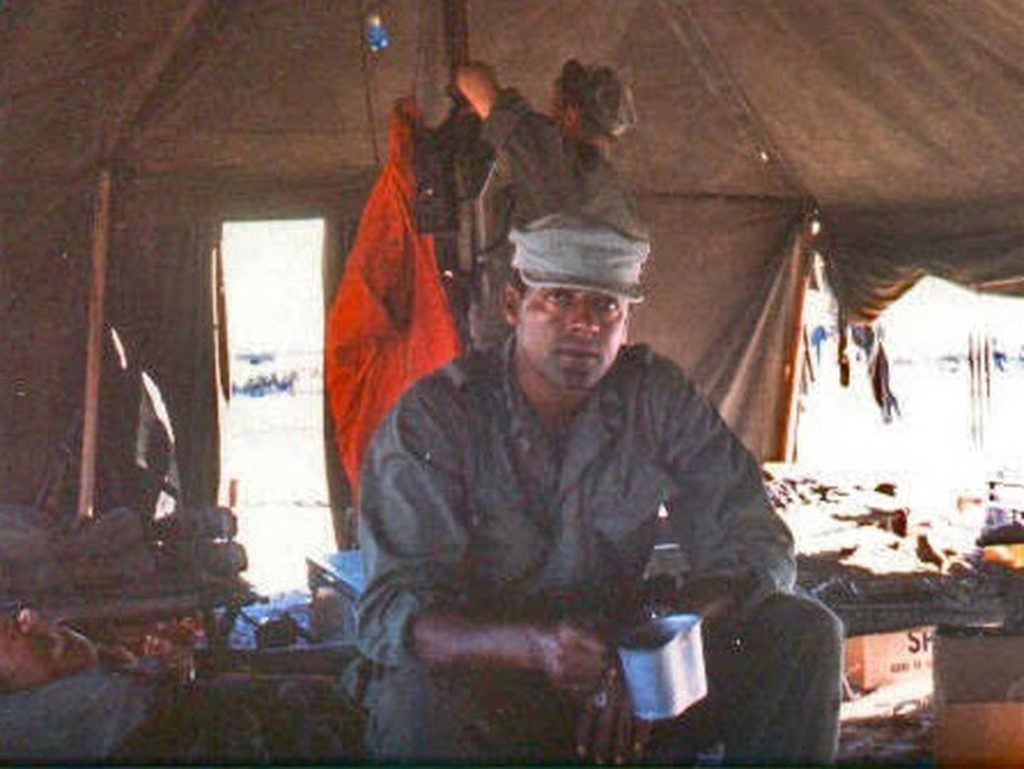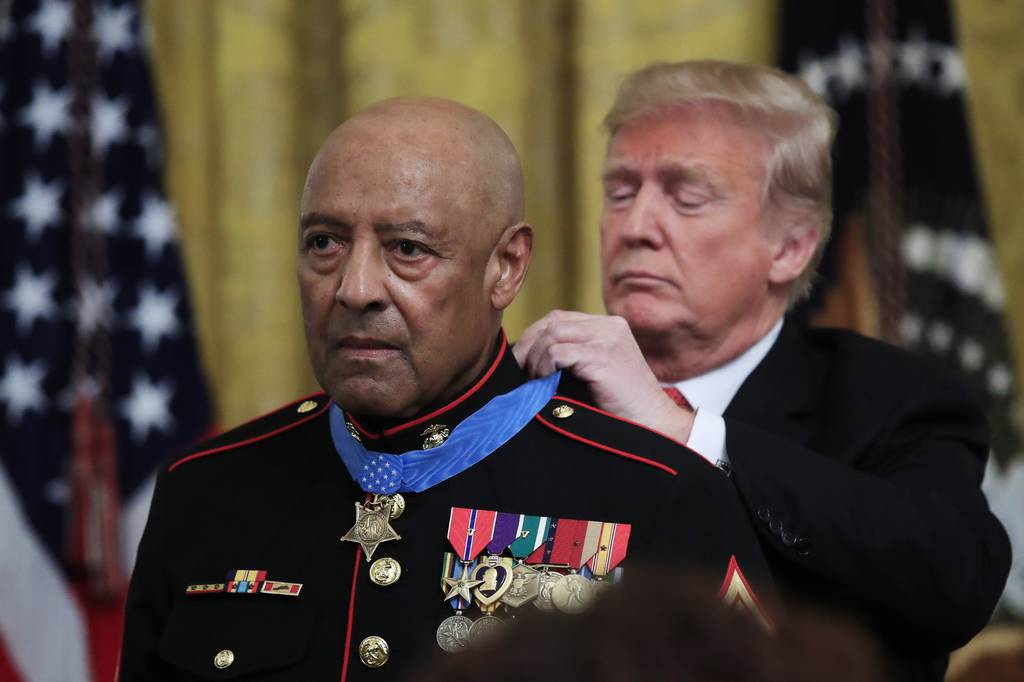Medal of Honor recipient retired Marine Sgt. Maj. John L. Canley died Wednesday after a decade-long battle with cancer, according to the Marine Corps.
Born Dec. 20, 1937, in Caledonia, Arkansas, Canley was 84 years old. He had enlisted in the Corps in 1953 and retired as a sergeant major in 1981, with three deployments to Vietnam.
He died in Bend, Oregon, with his family at his side, the Corps said Thursday in a press release.
Canley received the Medal of Honor in October 2018 from then-President Donald Trump, after a separate decade’s long battle: one with the Pentagon’s red tape to approve his award.
Canley originally was awarded the Navy Cross for 1968 actions at Hue City, Vietnam, Marine Corps Times previously reported. In 2005, there was a push to have his medal upgraded ― and for 13 years the Marines leading the effort were hit with setbacks and bureaucratic delays until he finally received his recognition, 50 years after his bloody street battles in Vietnam.
In 1968 in Hue City, Vietnam, Canley had been serving as company gunnery sergeant for Alpha Company, 1st Battalion, 1st Marine Regiment. Canley and his Marines “fought off multiple attacks” while patrolling the streets and relieving another Marine company.
During these bloody firefights, Canley “repeatedly rushed across gunfire-swept terrain” and carried wounded Marines to safety, according to his award citation.
After the company commander was severely wounded during what later became known as the Tet Offensive, Canley took command for three days.
“Under his leadership, Alpha Company Marines destroyed fortified enemy positions throughout the city as Sgt. Maj. Canley continued to carry wounded Marines to safety,” his award citation says.

On Feb. 4, 1968, in an effort to draw the enemy out and locate its position, “Canley moved to an open area, receiving machinegun fire” while his Marines destroyed the threat and completely took over the occupied building from the enemy.
Just two day later in a hospital compound firefight, Canley “twice scaled a wall in full view of the enemy to carry wounded Marines to safety.”
John Ligato, a former Marine private first class who had served under Canley, previously told Marine Corps Times, “We’d all be dead if it wasn’t for the gunny.”
Canley will be buried at a later date at Arlington National Cemetery in Virginia with full military honors, the Marine Corps said.
In addition to the Medal of Honor, his awards included the Bronze Star with Combat “V,” the Purple Heart, the Navy and Marine Corps Commendation Medal with Combat “V” and the Combat Action Ribbon.
Sergeant Major of the Marine Corps Troy Black said a statement, ”The actions in the face of danger Sgt. Maj. Canley took are incredible and remarkable.“
“Sgt. Maj. Canley was a leader and a warfighter who undoubtedly contributed to the battles won in Vietnam. His first priority was and has always been his Marines ― a true example of Semper Fidelis.”
His legacy will live on with the 90,000-ton expeditionary sea base John L. Canley (ESB-6), which is preparing for its christening in San Diego on June 25, the Corps said. It will be forward-deployed to the Western Pacific.
Sixty-four Medal of Honor recipients are now alive today, according to the Congressional Medal of Honor Society.
Originally published on Military Times, our sister publication.





